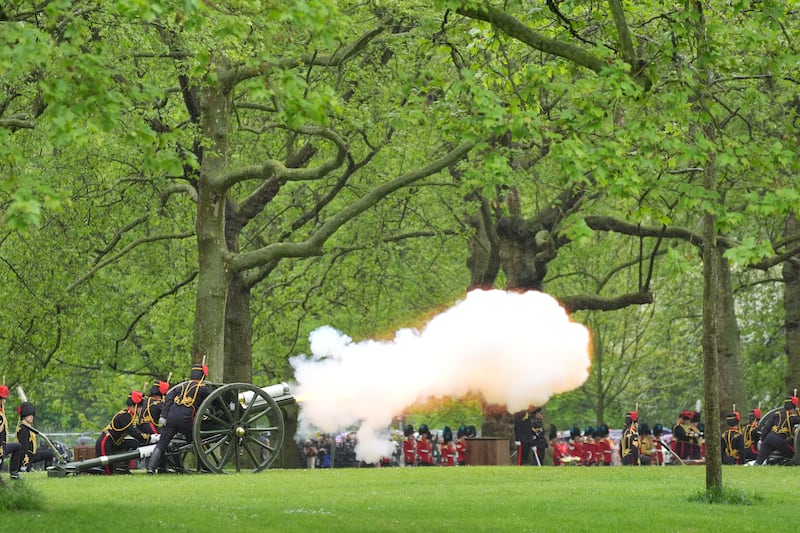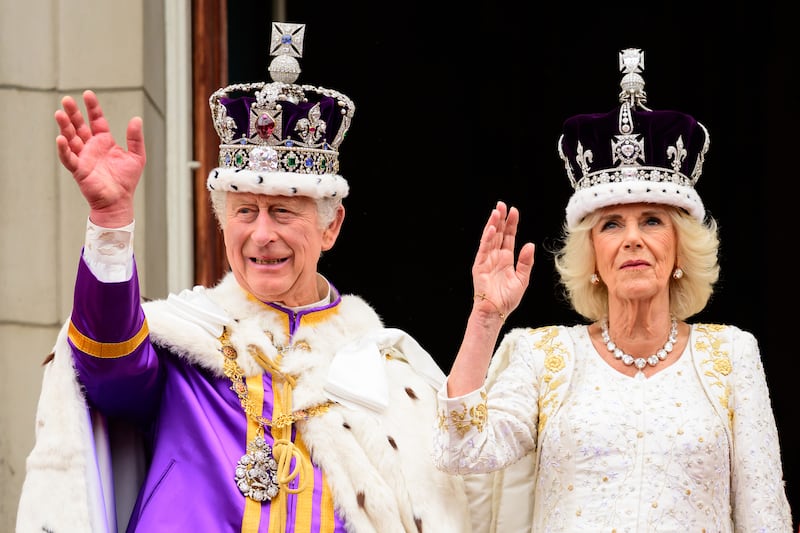THE UK economy contracted in May after businesses across the country downed tools for the King's coronation, according to official figures.
Gross domestic product (GDP) declined by 0.1 per cent for the month, after increasing by 0.2 per cent in April, the Office for National Statistics said.
The contraction was driven by the extra bank holiday weekend for the royal occasion, meaning sectors like construction and finance lost a working day in the month.
Analysts had been expecting the economy to shrink slightly more. Deutsche Bank thought the monthly GDP decline would be 0.3 per cent, while Investec Economics had predicted 0.5 per cent.
The pound surged to a 15-month high of more than 1.3 against the US dollar on Thursday following the better-than-expected data.
The economy had been boosted in April as consumers spent more in pubs, bars and shops.
But the accommodation and food services sector acted as a drag on growth in May, falling by 0.9 per cent after a 2.1 per cent bounce the previous month.
Some hotels, pubs and restaurants said they were boosted by the extra bank holiday day while others reported having fewer visitors, as the rainy weather led some people to stay at home.
There was a significant 3.5 per cent drop in employment activities during the month, with signs that there was less demand for recruitment services as job vacancies continue to fall.
The services sector as a whole showed no growth during the month, with falls for hospitality, employment and retail offset by growth for the health and social work sector, and the arts and entertainment industry.
Darren Morgan, director for economic statistics at the ONS, said: "GDP fell slightly as manufacturing, energy generation and construction all fell back, with some industries impacted by one fewer working day than normal.
"Meanwhile, despite the coronation bank holiday, pubs and bars saw sales fall after a strong April. Employment agencies also saw another poor month.
"However, services were flat overall with health recovering, with less impact from strikes than in the previous month, and IT also had a strong month."
The economy would need to contract again by 0.1 per cent in June for there to be an overall decline across the second quarter, according to the statistics body.
But if GDP in June rose by 0.3 per cent, then the economy will have grown over the quarter.
Some experts said May's GDP figure indicates that the economy is likely to have modest growth over the latest quarter.
"However, higher interest rates now appear to be beginning to bite, most visibly via higher mortgage costs," said Philip Shaw, an economist for Investec Economics.
"The sluggishness of manufacturing, overseas as well as domestically, has been well documented, but indicators of service-sector activity such as the PMI now appear to be weakening as well.
"The bottom line is that it will be difficult for the UK to escape a recession over the second half of the year."
Danni Hewson, head of financial analysis for AJ Bell, agreed that the future is more uncertain as "resilient is a far cry from robust".
"If the only way to stamp out inflation is to force a recession, the economy seems ready to capitulate," she said.
Chancellor Jeremy Hunt said: "While an extra bank holiday had an impact on growth in May, high inflation remains a drag anchor on economic growth.
"The best way to get growth going again and ease the pressure on families is to bring inflation down as quickly as possible. Our plan will work, but we must stick to it."
It comes days after official figures also showed that average regular wages, not including bonuses, jumped 7.3 per cent higher in the three months to May compared with the same period last year.
It matched the revised record-high level hit in the previous three months and was the joint highest since records began in 2001.
The uplift indicates that workers have sought pay rises to help keep up with the higher cost of living, with annual inflation hitting 8.7 per cent in May as food prices stayed elevated.







